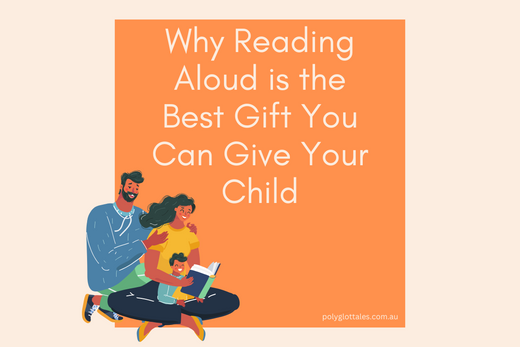In a world dominated by screens and fleeting interactions, the simple act of reading aloud to your child stands as one of the most profound and impactful gifts you can offer. It’s more than just a bedtime ritual; it’s an investment in your child’s emotional, cognitive, and social development. Let’s explore why reading aloud deserves a cherished place in your daily routine.
1. Strengthens Parent-Child Bonds
Reading aloud provides a unique opportunity to spend quality time with your child. Snuggling together with a book fosters a sense of security and connection. The shared experience of exploring stories, characters, and adventures creates memories that your child will carry for a lifetime. These moments of closeness lay the foundation for a strong, trusting relationship.
2. Boosts Language Development
Hearing you read exposes your child to a rich vocabulary and the nuances of language. Research shows that children who are read to frequently develop stronger language skills and are better equipped to express themselves. They learn how words sound, how sentences flow, and how stories are structured. This early exposure gives them a head start in communication and literacy.
3. Encourages a Love for Reading
Children who are read to regularly are more likely to develop a lifelong love for reading. Your enthusiasm and engagement during storytime show your child that books are exciting and full of wonder. This love for reading not only enriches their imagination but also sets them up for academic success, as reading is foundational to all learning.
4. Enhances Cognitive Skills
Reading aloud stimulates your child’s brain, fostering critical thinking, problem-solving, and creativity. As you read, your child is processing information, making predictions, and connecting the dots. Stories introduce them to new ideas, cultures, and perspectives, broadening their understanding of the world.
5. Improves Focus and Listening Skills
In today’s fast-paced world, many children struggle with attention spans. Reading aloud teaches them to focus and listen attentively. Over time, this practice helps them develop patience and concentration, skills that are invaluable in school and beyond.
6. Supports Emotional Development
Stories often mirror real-life challenges and emotions, providing a safe space for children to explore complex feelings. Through books, they learn about empathy, resilience, and problem-solving. Discussing a character’s journey allows children to process their own emotions and gain a deeper understanding of themselves and others.
7. Creates Lifelong Memories
The warmth of your voice and the joy of shared stories create memories that become part of your child’s personal history. Long after the books have been shelved, the emotional connection built during these moments will remain a source of comfort and joy.
Tips for a Meaningful Read-Aloud Experience
-
Make it a routine: Dedicate a specific time each day for reading aloud. Consistency helps children look forward to this special time.
-
Choose diverse books: Explore stories from different cultures, genres, and perspectives to spark curiosity and broaden horizons.
-
Engage your child: Encourage questions, predictions, and discussions about the story. This interaction enhances comprehension and makes the experience more engaging.
-
Use expression: Bring characters to life with your voice. Varying tone, pitch, and pace can make the story more captivating.
-
Follow their interests: Let your child’s curiosity guide your book choices. If they love dinosaurs, find stories that align with that passion.
In the grand tapestry of parenthood, the moments spent reading aloud are threads of gold. They weave together connection, learning, and love in a way that no app or gadget ever could. By reading aloud, you’re not just sharing stories—you’re nurturing a confident, compassionate, and curious individual. And that is a gift beyond measure.

